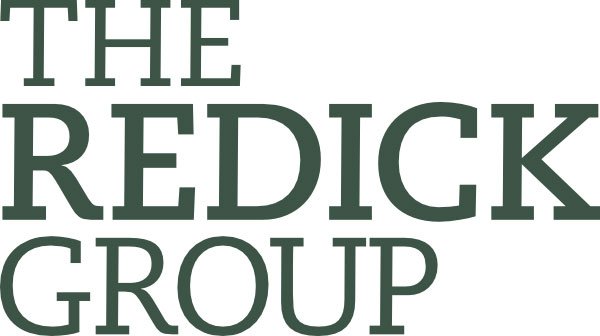Other hiring entities will look at anything beyond a single thank you note as being pushy, and as a result, they’ll shy away from the candidate. They’ll wonder, “Why the desperation? Is this a signal of something wrong that I should why away from?”
Read MoreWell, saddle up, because there's a pretty troubling bug (and important "scrubbing" procedure) you should know before sending out another Microsoft Word document.
Read MoreYou'll soon be free of the burdensome revelation about salary. At the same time, you'll be barred from asking others about their salary histories.
Korn Ferry's November 2017 article "Asking About Salary History? That's History" shares that U.S. states are making strides toward pay equity in ways we couldn't have imagined just a few years ago.
Read MoreFor starters, remember to always think of LinkedIn as a tool for business, not an online résumé. Even though LinkedIn fancies itself as just that—an online résumé (and then wonders why more people don't engage)—executives should not treat LinkedIn as an online résumé.
Read MoreEver fallen in love with a word or phrase, only to discover that everyone else is loving it, too? A word we all seem to be loving a bit too much right now is "amplify," so it's only a matter of time before it ranks on one of the interweb's "most overused business phrases" lists.
Read MoreImagine that Miss USA had a LinkedIn profile. Now imagine that somewhere in that profile she included the phrase, "I’m beautiful." Why? Because she believed it was a keyword or phrase by which others would find a beauty queen.
Now imagine that the late Steve Jobs had a LinkedIn profile, and somewhere in his profile he said, "I'm an innovator." Why? Because he had a hunch that someone might enter “innovator” into LinkedIn’s Advanced Search tool to find someone like him.
Do either of the above scenarios sound right?
Read MoreAs infants, we learn that star-shaped pegs fit only in the star-shaped holes. So why do we backslide as adults and start thinking our star-shaped pegs should suddenly fit into square holes?
Read MoreIf you haven't discovered the wonders of the minus symbol when querying LinkedIn search, or the benefits of incrementally refining search parameters using other query features, take a moment to tinker and see if LinkedIn doesn't finally become the business tool you can't live without.
Read MoreParagraph one references a Fast Company report, paragraph two references a PayScale survey, and paragraph three references a Dice survey of 1,600 technology professionals in the U.S.
I love the collective insight, but when you think about the sources, they're kind of apples to oranges, so you can't look at the findings as a single harmonious conclusion.
Read MoreSometime things are so obvious we miss them entirely.
That's what happened this year when a client's new job was mentioned on Fortune.com. His LinkedIn profile had worked like a charm, and his executive résumé and other materials were there to support his candidacy for the right company.
Read MoreI've come to learn that [a big part is] the amount of risk and [how the ideal candidate's] expertise mitigates that risk. It's a big reason why recruiters usually stick to a sure thing when recruiting a high profile role, and why it's important for someone who's a ways into their career—but not at a level they'd like to be—to have an advocate on the inside. In other words, someone who's willing to stick their neck out and vouch for them.
Read MoreIf you're thinking about uploading your résumé to a job board, don't. For oh-so-many reasons. If you're relying entirely on job boards, don't. If you want to know why, read Nick Corcodilos' insightful and convincing article. It's as good today as it was when it was uploaded in 2013.
Read MoreBut the P&L hiccup held lessons for both. Three lessons, in fact. One, P&L management matters. Two, not all search firms are built equally (the firm should have done better). Three, the CEO in question might have been short-sighted by not exploring a bit further. The important lessons are still there for all to see.
Read MoreA major component of networking, as classically defined in the career development world, is realizing that networking is a long-term investment—a concept that Shauna Bryce speaks eloquently about in our joint Eye on the C-suite presentations.
Read MoreI sat there with a golden ticket for someone. I had my target list of potential candidates, carefully assembled by our research team. And on that list, I would periodically come to names that I couldn't readily pronounce.
Read MoreIs it important to be able to talk about yourself at a high level? Yes. That's the purpose of developing an aggregate understanding about yourself and your career, which is really what an "elevator pitch" is. But that should lead to an in-depth conversation, in which you should be equally skilled.
Read MoreLet's face it. Writing a LinkedIn recommendation—even a really good one—isn't going to win you any literary awards. In fact, your beautifully crafted copy will these days be cemented to the absolute bottom of your subject's LinkedIn profile. No fame for you today.
So why try to write a great LinkedIn recommendation? Why not just dash off a few lines of well-trodden, risk-free copy used by so many others?
Read MoreHeidrick & Struggles tweeted this morning a link to their 2015 CEO Report: Embracing the Paradoxes of Leadership and the Power of Doubt. If you're a CEO, or well on your way, this quite simply is one not to miss.
Read MoreThen this morning, I stumbled upon Boyden Global Executive Search's "Candidate Resources" page, and voila! The left sidebar has a great list of BlueSteps member benefits, top among them being the most critical piece: confidentiality.
Read More



















